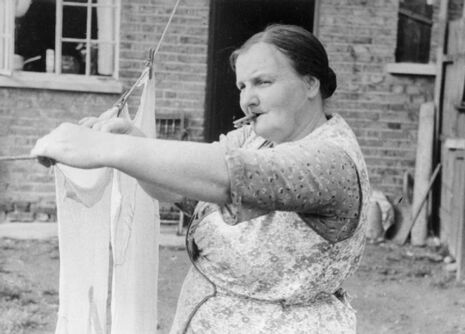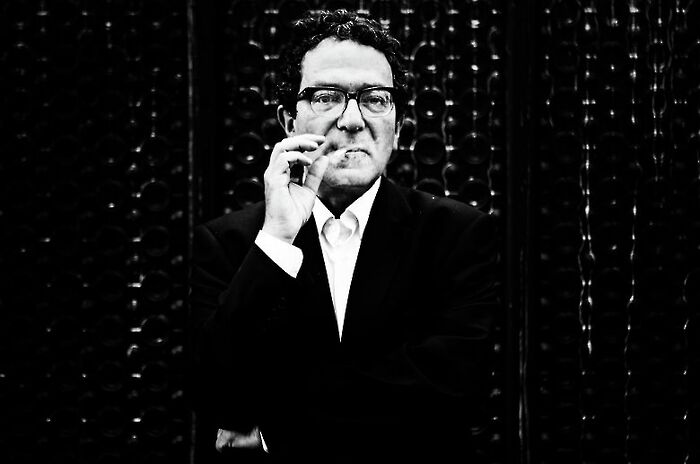Blue Labour needs to get with the times
Henry Coleman tells us that the Labour Party pressure group is out of touch with modern work and the modern working class

It sometimes feels like the Labour Party has been gripped by a series of existential crises over its future and purpose since it was first founded. The latest instalment of this series comes in the shape of academic, community organiser and founder of the pressure group Blue Labour, Maurice Glasman, who believes Labour has fatally lost touch with the working-class.
Interviewed in Varsity last week, he described modern Labour as a ‘predominantly middle-class party’. But Glasman’s analysis is fundamentally flawed. The class system he identifies is that of the past, irrelevant to the modern world and its transformed economy. Most dangerously of all, it may well prevent Labour from properly reckoning with the true issue: the risk that the nature of work itself might change so much we can no longer talk of a working class at all.
Glasman’s vision of the past is a romanticised one. While last week his harshest words were directed at New Labour, he has previously said that he thinks Labour became a middle-class party after 1945. Was the National Health Service not worth stuffing doctors’ mouths with gold, in the words of its founder Nye Bevan? The tradition Attlee sprung from is one which was crucial to the Labour Party from its inception: the Fabian Society, made up of the middle-class intellectuals and philanthropists, was one of the organisations which founded the party in 1900.
“The nature of work itself might change so much we can no longer talk of a working class at all”
Most importantly, though, is that Glasman’s working class doesn’t exist now. It is surely an impossible task for Labour to get back in touch with a homogenous blob of a working class when it isn’t present in the real world. The basis for the working-class culture Glasman idolises is dead, focused on industrial work which has long since left this country. The modern working class is more fragmented, more diverse, and concentrated in the large cities Glasman seems to innately mistrust.
The Northern cities left behind in the wake of a changing nation were won over just last year by an anti-austerity Brexit campaign promising money for public services and courting nostalgia. Unfortunately for Glasman’s ideas, the Brexit campaign only won by combining that with anti-immigrant sentiment. This would be unsustainable for the modern Labour Party, precisely because the modern working class is made up of immigrants and ethnic minorities.
This working class is also now having to struggle with an entirely new set of challenges. The nature of work is changing in the face of the gig economy, as pioneered by companies like Deliveroo and Uber – so much so that the BBC’s Class Survey even suggested a new class, the precariat. These are people working unreliable, insecure jobs, and doing jobs which would not have existed a hundred years ago. Glasman has attacked globalisation, but this feels a small part of the rest of his thinking – instead of new solutions, his alternative is simply a retreat to a isolationistic ‘utopia’.
But, as the word ‘utopia’ comes from the Greek for ‘no place’, Glasman’s thoughts are reminiscent of nothing more than nineteenth-century utopians, whose visions of delightful agrarian economies on the rough model of the Garden of Eden became a cottage industry of themselves while the Industrial Revolution roared on around them.
It is perhaps ironic that it is the society created from that revolution which Glasman harks back to, even as a new upheaval seems to be happening. It is never easier to understand Glasman’s antipathy towards bureaucrats than with the jargon of a ‘fourth Industrial Revolution’, but their point is true; robots threaten to revolutionise the world of work, and any social democratic party needs a solution to that impending problem.
Glasman’s ideas on the subject always seem to return to the vague instruction of becoming more like Germany – a worthy goal, but not one Ed Miliband found particularly electorally successful. Getting in touch with the working class is important, but most important of all is getting in touch with what work is, not what it once was.
Glasman’s ideas pivot on the question of identity. For him, family, religion, and patriotism are not vague abstracts but the things which bind communities together. At the heart of his idolisation of the working class is his feeling it was the guardian of community, and now it is not. David Goodhart, another Blue Labour thinker, has written about a divide between ‘anywheres’ – urban, middle-class intellectuals without a sense of community – and ‘somewheres’ – the rooted working-class. The critical problem with this conceptualisation is that people who felt a strong sense of attachment to community were actually more likely to vote remain in the EU referendum – unlike Glasman, who backed Leave.
It is hard to see just how Labour could correct for the decline in family and faith taking place in the West, but Blue Labour seems to think it can do so on the Tinkerbell principle: believing, in community and values and the working class as one homogenous lump, is enough. Doubting is not an option
 Interviews / You don’t need to peak at Cambridge, says Robin Harding31 December 2025
Interviews / You don’t need to peak at Cambridge, says Robin Harding31 December 2025 News / Downing investigates ‘mysterious’ underground burial vault 29 December 2025
News / Downing investigates ‘mysterious’ underground burial vault 29 December 2025 News / Unions protest handling of redundancies at Epidemiology Unit30 December 2025
News / Unions protest handling of redundancies at Epidemiology Unit30 December 2025 Lifestyle / Ask Auntie Alice29 December 2025
Lifestyle / Ask Auntie Alice29 December 2025 Features / ‘Treated like we’re incompetent’: ents officers on college micromanagement30 December 2025
Features / ‘Treated like we’re incompetent’: ents officers on college micromanagement30 December 2025









